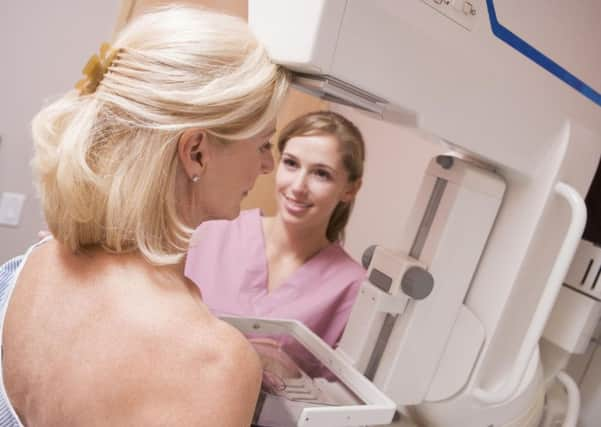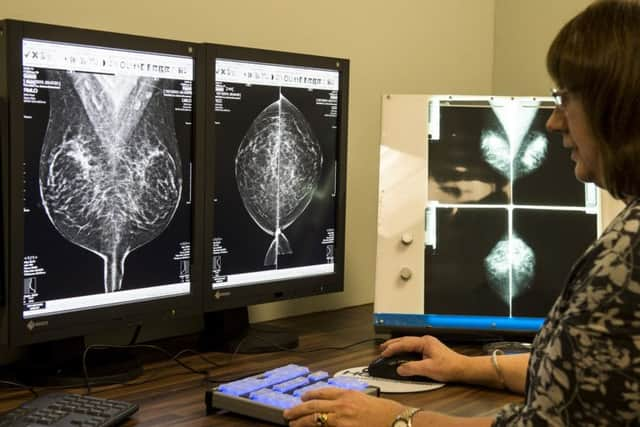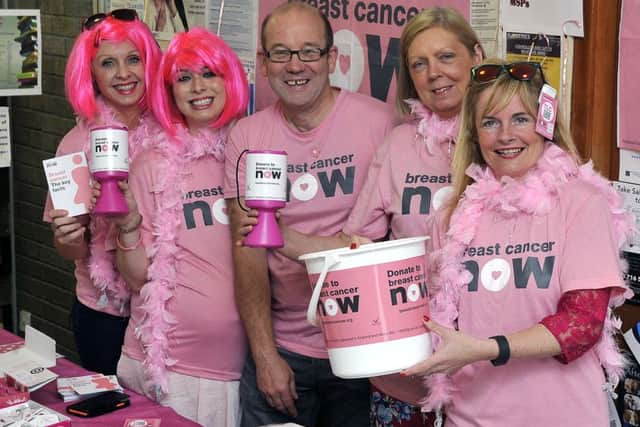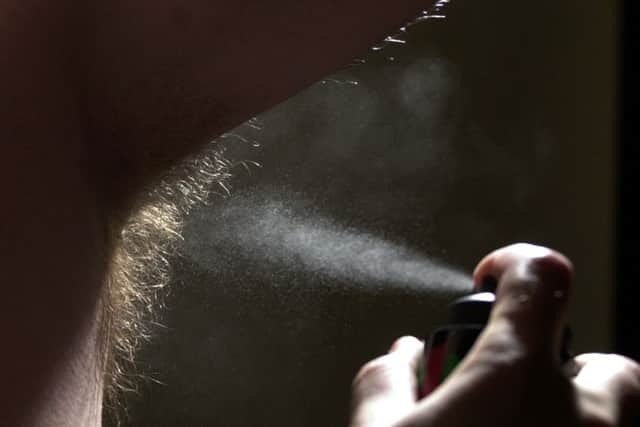Breast cancer risks: myths debunked


With more than 50,000 women diagnosed with breast cancer each year in the UK, there are often stories about the possible causes of breast cancer and how to prevent it.
It seems that almost weekly, a new ‘breast cancer risk’ is announced by the media, which can cause confusion about what has or hasn’t been shown to be linked to breast cancer.
Advertisement
Hide AdAdvertisement
Hide AdSo, to help you separate the truth from the myths we’ve set straight some of the common misconceptions around breast cancer risk.


Does having breast implants increase my risk of breast cancer?
Quite simply put, no. There’s no evidence to support any claims that having breast implants is linked to breast cancer.
You may remember stories in 2011 about problems with a particular type of implant called ‘PIP’. These were banned in 2010 after they were found to contain a type of silicone gel that isn’t approved for medical use, and was more likely to rupture. Widespread media claimed that if these leaked it could increase your risk of cancer. However, findings from researchers around the world have so far have been reassuring and studies have found that no ingredients in PIP implants cause cancer.
If I’ve had an abortion, does this affect my risk?


It’s unlikely that having an abortion affects your risk of developing breast cancer.
Some theories suggest that having an abortion might increase the risk of breast cancer because it disrupts the natural development of breast cells during pregnancy, making them more likely to develop into cancer cells. However, there’s no scientific or clinical evidence to support this.
I’ve heard that deodorants can cause cancer?
An email rumour that using deodorants causes breast cancer circulated in 1999, and was quickly spread by the media. Many of us will have seen an email like this. However, there’s no good evidence to support these claims.


More recently, there have been claims that aluminium salts, which are a common ingredient in antiperspirants, can cause breast cancer by blocking the sweat ducts and preventing sweating.
Advertisement
Hide AdAdvertisement
Hide AdAgain, there’s no research to support this. This claim could be because of the fact that women are advised to avoid using antiperspirants when they go for a mammogram. However, this is only because the aluminium might show up on the x-ray image and give an inaccurate reading.
Does wearing underwired bras increase my risk?


You shouldn’t have any concerns about wearing any type of bra – none of them, including underwired bras, have been shown to increase your risk of breast cancer.
Will a bump or bruise to my breast cause cancer?
While bumping or injuring your breast isn’t the most pleasant experience, there’s no good evidence that it increases your risk of breast cancer. After an injury you might be more likely to check your breasts and so may notice an unusual change, such as a lump, but this is unrelated to the injury itself.
What about using mobile phones or microwaves?
There’s no good evidence to suggest that exposure to ‘non-ionising radiation’, such as that from mobile phones or microwaves has any effect on your risk of developing breast cancer.
The confusion behind these rumours may be linked to the fact that another type of radiation, known as ‘ionising radiation’ can increase the risk of many cancers, including breast cancer, depending on the amount you’re exposed to. This includes x-rays.


Before you start to worry about radiation from x-rays, it’s important to remember that we’re exposed to radiation from natural sources, such as cosmic rays from the sun, every day. In fact, the dose you receive from medical imaging is normally less than you’d receive from natural exposure over a few days. This makes the risks associated with mammograms and other x-rays very small.
I’ve heard that eating certain ‘superfoods’ can help to reduce my risk?
While maintaining a healthy diet might help to reduce the risk of breast cancer, we still aren’t sure if any specific dietary factors influence the chance of developing the disease.
Advertisement
Hide AdAdvertisement
Hide AdThere’s little scientific basis for the term ‘superfood’, it’s really just a marketing tool as it’s unlikely that any single food will make a major impact on its own. Many ‘superfoods’ contain natural chemicals such as vitamins and minerals that have been shown to have positive health effects in laboratory studies. However, foods contain many chemicals and laboratory studies are usually carried out using a purified ingredient often in very large doses from a particular food.
This means that even eating very large portions of a ‘superfood’ might not provide enough of a specific ingredient to have any effect on our health.
So, what can I do to reduce my risk of breast cancer?
Many factors linked with breast cancer can’t be changed, such as your height or when you started your periods. However, there are things you can do, such as maintaining a healthy weight, limiting the amount of alcohol you drink and making sure you get 30 minutes of physical activity a day, which can help to reduce your risk of breast cancer.
If you’re worried about any breast cancer risks, we would encourage you to discuss your concerns with your doctor.
More information visit the Breast Cancer Now website which has several free fact sheets that look in more detail at the effect of some factors on breast cancer.
Shivali Best is a Health Information Officer in the Public Health and Information Team at Breast Cancer Now.
The blog originally appeared here
